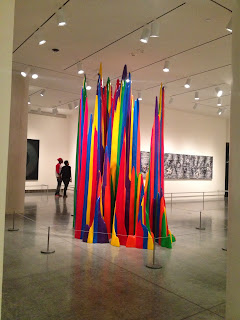For
my second beyond class assignment, I went to the event here at Richard Bland. The
Honors Program at RBC hosted a guest speaker, TyRuben Ellingson. He talked
about his career, how he create his designs from shapes, and his skills as a
special effects artist. His background in design and talent has led him to work
on movies such as: Avatar, Elysium, Casper, The Flintstones, Pacific Rim, Jurassic
Park, and so on. He has a master’s degree in fine arts and currently teaching at
VCU in the Communicative Arts department. It was interesting to see the designs
and special effects he came up with. He also mentioned how he likes working
with cheap ball point pens like the ones in a bank or hotel rooms.
I was impressed when he mentioned about Avatar and the amount
of time to finish the work. It took him about 2 years, focusing on details,
designs, and this and that until it was finally approved. I appreciate people
who devote their time into something they really like to do because the more
time they commit, the better they’ll get. It’s really about focusing, commitment,
having a great confidence, and networking with people that got him to where he’s
today. It was a great event to attend and click on the link if you would like
to know more about him.






